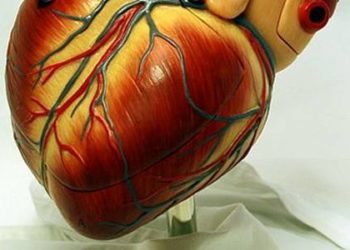First trimester biomarkers screen for congenital heart defects
Image: PD
1. First trimester maternal serum metabolites are significantly different in mothers of fetuses with congenital heart defects compared to those without heart defects.
2. These biomarkers can be used in a logistic regression model to accurately predict risk of congenital heart defects.
Evidence Rating Level: 3 (Average)
Study Rundown: This study found that first trimester maternal serum metabolites can be used to predict risk of fetal congenital heart defects (CHD). Past studies have found abnormal folate and single carbon metabolism to be associated with CHD, but the present work is the first study to conduct a comprehensive metabolic analysis of fetal CHD. The findings of this study identify a screening test that may be used in conjunction with prenatal ultrasound to improve the timing and accuracy of fetal CHD diagnosis.
Limitations include small sample size and case-control design. Additionally, cases were limited to fetuses identified prenatally; it is unknown whether there might be differences in metabolic profile and predictive ability of the regression model among infants whose CHD were identified after birth. Larger, prospective cohort studies are needed to validate the predictive ability of the proposed model for use in the general population.
Click to read the study in AJOG
Relevant Reading: Prenatal detection of heart defects in a non-selected population of 10149 fetuses-detection rates and outcome
In-Depth [case-control study]: This study evaluated differences in metabolites in 1st trimester serum of mothers of fetuses with (n=27) and without (n=59) CHD. Metabolites were isolated using mass spectrometry and nuclear magnetic resonance spectrometry. Outcomes evaluated include metabolite concentrations and ability to predict CHD.
Mothers with fetuses with CHD were more likely to have lower levels of C3-OH, C5-OH(C3-DC-M), C14:1 and SM C22:3 (p<0.0001). A logistic regression model using C3-OH, C5:1-DC and C14:2-OH had good ability to predict risk of CHD (AUC 0.981, CI 0.942-0.999; sensitivity 0.929, CI 0.833-1.00; specificity 0.932, CI 0.868-0.996).
More from this author: Cerclage outcomes similar in singleton and twin pregnancies, New sepsis scoring system aids in predicting morbidity in obstetric patients, Induction after 40 weeks in women with gestational diabetes associated with Cesarean delivery, Potential overuse of routine postpartum CBC, Poor fetal growth in overweight & obese with insufficient weight gain
©2012-2014 2minutemedicine.com. All rights reserved. No works may be reproduced without expressed written consent from 2minutemedicine.com. Disclaimer: We present factual information directly from peer reviewed medical journals. No post should be construed as medical advice and is not intended as such by the authors, editors, staff or by 2minutemedicine.com. PLEASE SEE A HEALTHCARE PROVIDER IN YOUR AREA IF YOU SEEK MEDICAL ADVICE OF ANY SORT.





![Spironolactone not beneficial in heart failure with preserved ejection fraction [TOPCAT trial]](https://www.2minutemedicine.com/wp-content/uploads/2014/04/Pulmonaryedema09-75x75.jpg)
![Fibrinolysis for pulmonary embolism may prevent hemodynamic collapse [PEITHO trial]](https://www.2minutemedicine.com/wp-content/uploads/2014/04/762px-SaddlePE-75x75.png)